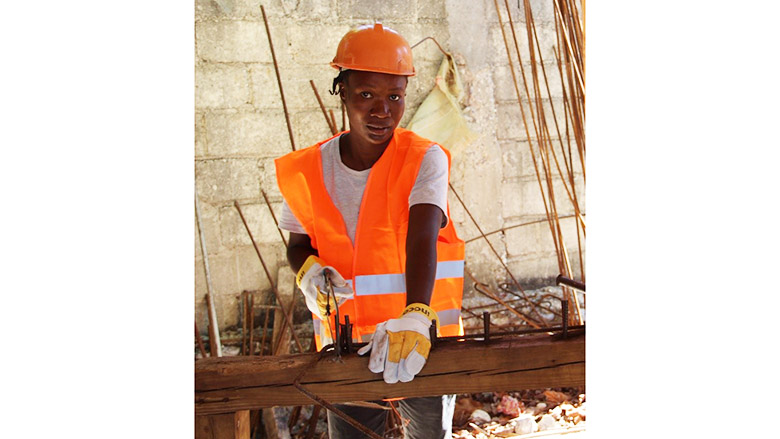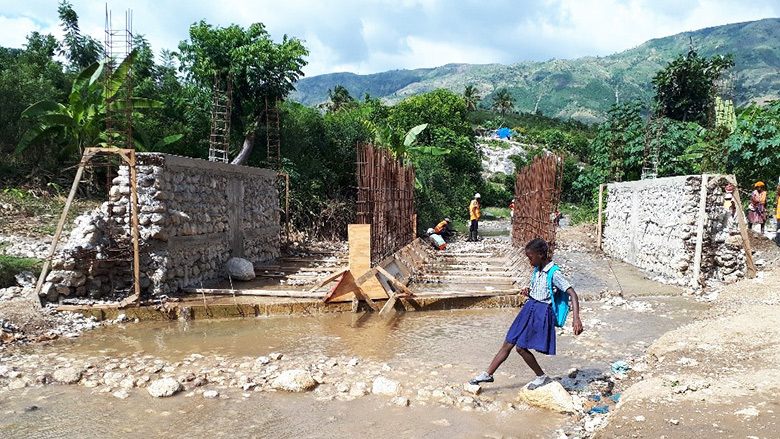For more than two weeks, the city of Chardonnières, on the South coast of Haiti, has been bustling with activity. Amidst bystanders, small farmers, merchants, and schoolchildren, all going about their activities, is Fredeline Calvaire, a young woman in her thirties who works in the construction industry. While in the past, construction was exclusively done by men, today this slender and seemingly shy mother of four is applying her know-how to the building of a small bridge, that will link various communities of Chardonnières with the rest of the region.
After Hurricane Matthew dumped more than 23 inches of rain on Haiti, mostly across the southern peninsula, more than a million people were isolated due to impassable roads and surging rivers. The hurricane claimed more than 450 lives and caused damages totaling $2.778 billion (equivalent to 32% of the country’s GDP), including $106.4 million (18% of GDP) in damages in the transport sector.
“In the aftermath of Hurricane Matthew, we were completely cut off from the rest of the area because the bridge was destroyed—washed away by the runoff. Whenever it rained in the nearby mountains, we couldn’t get to the health center or go to the market without risking our lives by crossing wild rivers, which often overflow and cause damage to people’s homes,” recalls a farmer living in the area.



